The ANBI status, introduced by the Dutch Tax Authorities, allows donors to benefit from tax advantages on donations and signifies a professional and reliable organisation.
Since January 1, 2014, non-profit organisations must publish required information online to maintain ANBI status. Rewilding Academy Nederland has held this status since January 2023, meaning we are exempt from taxes on inheritances and donations, ensuring all contributions fully support our work. Donors can also deduct their gifts from income tax within applicable rules.
Basic Information
Stichting Rewilding Academy
Website: rewilding.academy
Email: info@rewilding.academy
Address: Kruisstraat 42A, 6411 BV Heerlen
Chamber of Commerce number: 85773956
RSIN / tax number: 863737298
Objectives
The purpose of the foundation is to promote the conservation and restoration of nature through rewilding and sustainable management of ecosystems, anywhere in the world, in as complete a capacity as possible, based on natural processes, including:
I. capacity building, education, training and skills development to promote knowledge, awareness and effectiveness of interventions;
II. ecological restoration and reintroduction of locally extinct animal and plant species;
III. initiating and implementing projects that support and advance international climate goals;
IV. promoting rural development through sustainable forms of land use.
Strategic Plan
Vision
A world where people and wildlife thrive in healthy ecosystems, reconnected for a resilient and biodiverse future.
Mission
To serve as a global incubator for rewilding projects and practitioners, strengthening capacity for ecosystem restoration through education, training, and field-based learning.
Strategic Objectives
- Incubation of Rewilding Projects and Practitioners
- Support the conception, development, and scaling of innovative rewilding initiatives.
- Provide mentorship, technical guidance, and practical resources for emerging rewilders and organisations.
- Foster networks that connect local leaders, scientists, and practitioners to share best practices and lessons learned.
- Landscape Restoration and Species Reintroduction
- Implement rewilding programmes that restore degraded landscapes and reintroduce keystone species.
- Integrate restoration efforts with adaptive management, applied research, and ecological monitoring.
- Promote sustainable, community-led approaches that build local stewardship and resilience.
- Education and Capacity Development
- Design and deliver curricula, courses, and experiential learning aligned with the UN Decade on Ecosystem Restoration Education Challenge.
- Provide hands-on field training and learning opportunities that link theory with practical restoration work.
- Empower emerging practitioners to translate knowledge into tangible conservation outcomes.
- Applied Research and Learning
- Develop a learning framework to capture, analyse, and disseminate lessons from active rewilding projects.
- Facilitate partnerships with academic institutions, NGOs, and conservation networks to advance evidence-based restoration practices.
- Use each rewilding initiative as a “living classroom” to integrate practice, research, and innovation.
Core Activities
- Project Incubation: Mentoring, technical support, and seed initiatives for emerging rewilding projects.
- Field-Based Learning: Hands-on restoration, species monitoring, and adaptive management training.
- Curriculum Development: Modular courses and educational resources tailored for diverse audiences and aligned with international restoration education frameworks.
- Research & Knowledge Sharing: Applied research, monitoring protocols, and case studies to improve rewilding practices globally.
- Community Engagement: Capacity building for local leaders and stakeholders to ensure long-term sustainability and ownership of projects.
Expected Outcomes
- Increased global capacity of practitioners able to implement effective ecosystem restoration projects.
- Restored landscapes and reintroduced species demonstrating measurable ecological improvements.
- A strong cadre of trained rewilders, equipped to lead initiatives and advocate for nature-based solutions.
- Knowledge generated through projects informs global best practices and contributes to the UN Decade on Ecosystem Restoration goals.
Strategic Positioning
The Rewilding Academy functions at the intersection of education, applied conservation, and innovation. By bridging knowledge and practice, we aim to create a community of capable, adaptive, and collaborative rewilders who can drive large-scale ecological recovery globally.
Board of the Rewilding Academy
Arend de Haas — Chairman
Euridice Leyequien — Secretary
Vacancy — Treasurer
Remuneration policy for Board and Committees:
The Rewilding Academy operates under a one-tier board structure, in which the Board of Trustees holds sole oversight, decision-making authority, and legal responsibility for the organisation. The board is composed of both Executive (management) and Non-Executive (supervisory) trustees. Board members and committee members do not receive any form of remuneration for their duties, directly or indirectly. Only pre-approved expenses incurred in the performance of their responsibilities may be reimbursed, and no attendance fees are paid.
Finance
The Rewilding Academy raises funds (donations and grants) from institutional and private organisations and private individuals. The donations vary in size between 5 euros and 200,000 euros.
The foundation develops a Trust Fund to finance its long-term goals.
Financial Reporting
The Rewilding Academy has been registered in March 2022. Annual reports will be published on its website.
Jaarrekening 2022 (Annual Report 2022)
Jaarrekening 2023 (Annual Report 2023)
Jaarrekening 2024 (Annual Report 2024)
Policies
Safeguarding Policy
Integrity Policy
Volunteer Policy
Privacy Policy
Payment and Cancellation Terms



